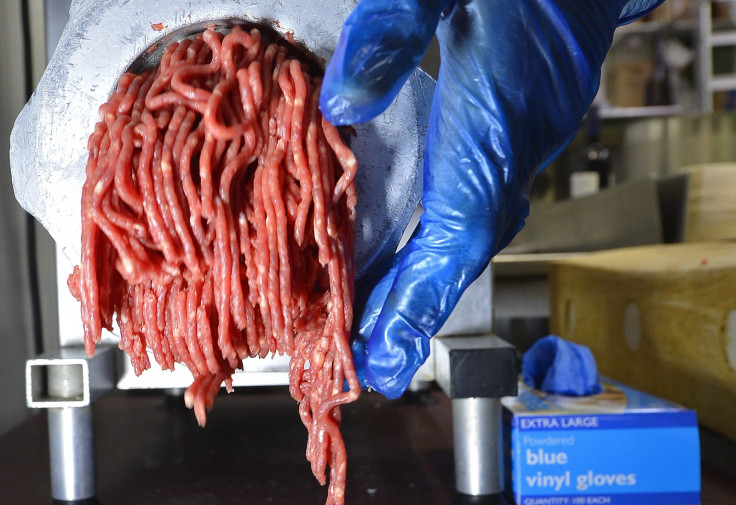Putin's Tit-For-Tat Sanctions on West Put British Beef Back Off Russian Menus
Nearly a year after lifting former UK beef ban Russia puts a stop to meat imports from the EU and US

Less than a year after the door to the Russian market was opened up to them again, British beef producers have had it slammed back in their faces.
Towards the end of 2012, the Russian government agreed to end its 16 year beef with British cows by lifting an import ban which had been put in place amid the BSE crisis.
It was a meaty opportunity for Britain's beef industry. Russia's market meant as much as £100m ($168m, €126m) in potential business, from the farmers to the processors. Multi-million pound deals were being lined up as British firms put in the groundwork to re-establish themselves as purveyors of fine beef in Russia.
Little did they expect to be caught up in an international crisis that would see the annexation of Crimea by Russia and the killing of 298 people when pro-Russian rebels downed a Malaysian Airline passenger plane over eastern Ukraine.
And now, as a tit-for-tat sanctions battle unfolds between Russia and the West over the former's recent actions in Ukraine, British beef is back off Russian menus.
Cattle products are on a list of various imports to Russia banned by Vladimir Putin, the country's president, from those that have imposed economic and financial sanctions over Ukraine. This includes all 28 European Union (EU) member states, of which the UK is one.
Russia banned imports of British beef at the height of the BSE crisis, which started in the mid-1980s, when the disease was first known to have infected not just cows, but humans too in a form of Creutzfeldt-Jakob disease (CJD).
It outlawed British beef imports in 1996 at the same time as the EU. After a decade the EU lifted its ban, but the Russians' prohibition continued.
Now BSE is all but gone from British cows after years of work by the government, farmers, and regulators. When Russia ended its ban, the National Beef Association in the UK declared it "a vital step" for the industry. That optimism is now on ice.
Russian Beef Imports
Eblex, another organisation that represents beef and lamb industry, said the UK hadn't even been able to get off the starting block since the Russian market opened.
Russian beef imports had been steadily declining anyway. In the first three months of 2014 they had fallen back to 114,000 tonnes, the lowest since for an opening quarter.
Brazil and Paraguay, neither of which have put sanctions on Russia, accounted for 85% of this. Eblex said this is because Russia likes its beef to be cheaper than others can sell it at.
"From a UK perspective, we currently send them nothing," said a spokeswoman for Eblex.
"We gained market access for beef in September 2013 but it has been too early in the trading process for large volumes to be going. Companies were still working on the logistics. Since the troubles started, activity has largely ground to a halt as companies wait to see what happens."
Most of the beef going from the EU to Russia – which accounts for 8% of its imports – comes from Poland and Germany.
"If Polish and German beef is banned, this may impact on supply in the rest of Europe which could impact our British exports elsewhere," said the Eblex spokeswoman.
"However, volumes are low anyway from both countries, so we are not anticipating a huge impact on our industry."
Food and drink exports from the UK to Russia have grown by over 220% since 2000 and are now worth over £121.5m.
© Copyright IBTimes 2025. All rights reserved.






















